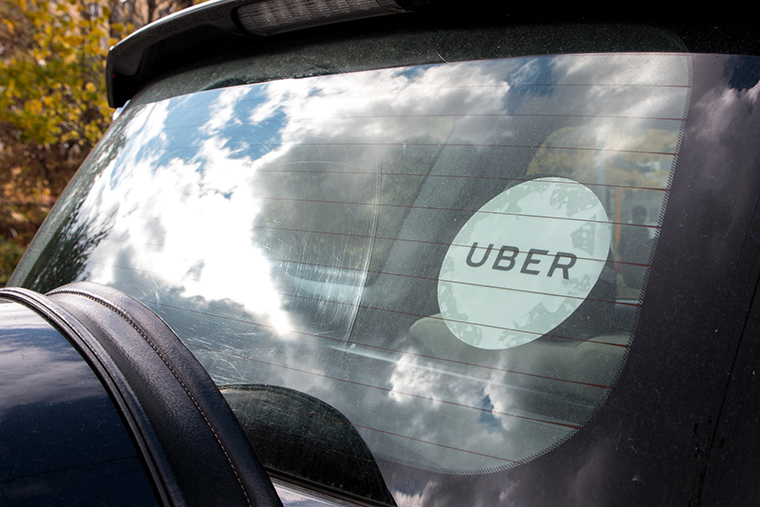Did you know that you can pay for your employees taxi trips between home and work and not have to pay FBT? Normally travel between home and work is considered a private expense.
There are however a multitude of exemptions based on the type of vehicle, the nature of work and the type of equipment you may need to transport. Think utes and special purpose delivery vans, shifting places of employment and carrying heavy equipment. Taxis are included but it is limited to the FBT rules, so the employer needs to pay for it – the employee can’t get a deduction by paying for their own taxi trip straight home from their regular work location. It is primarily used by larger employers as an incentive to work late but many progressive smaller employers also offer it. With no FBT payable it becomes a tax-free benefit, reducing the cost of the trip to the employee by their marginal tax rate. If the employee is on a 35% tax rate, they may prefer the cash, net of tax, then catch the bus and pocket the rest. So it is not for everyone.
Less well-known is that electric bikes and bus fares can also fall within an FBT exemption for home to work trips. But that is a topic for another day.
The taxi FBT exemption was introduced in 1995 by the Keating government but it was limited to after-hours trips. Prior to this, you could only get FBT-free taxi travel under the minor benefits exemption, which can be tough to apply as it needs to be “infrequent". Keating’s new flat concession for taxis between certain hours was designed to make it easier for employers to determine eligibility. In 1999, in response to a deregulation taskforce report, the then treasurer Peter Costello relaxed the rules further by removing the limitation to certain hours. This is where the rules have stood since.
The impact of Uber
The impact of Uber on the cost of being chauffeured home has, however, been significant. It means this method of getting home becomes much more viable, particularly if the tax benefit can be obtained by having your employer pay for it.
This was always going to catch the eye of the ATO and they have long maintained that Uber rides don’t count, they are not taxis for FBT purposes.
A slight spanner in the works for the ATO was that they also wanted to consider Uber drivers as operating a “taxi” for the purpose of the GST rules. This meant they could not escape GST registration by merely having less than $75k a year in income. This GST rule for taxi drivers exists because it is a significant industry, involving workers who are not traditional employees. The vast bulk of taxi drivers would never need to register. The same is true of Uber and most of the sharing economy. The ATO definitely did not want most of this industry revenue to escape GST. In a major 2017 case, Uber B..V vs FC of T, the ATO’s position that an Uber was a taxi for GST purposes was confirmed, but they stuck with their interpretation that an Uber car was not a taxi for FBT purposes.
Despite being forced into an apparently contradictory position, there must be a degree of sympathy with what the ATO is trying to achieve.
Fortunately for the ATO the FBT legislation contains a critical word – “licenced”. Perhaps the original drafters of the legislation had it in mind that it was supposed to be limited to the regulated, and expensive, taxi system. At the time the word taxi was defined in the FBT legislation in 1995 it was only to make the minor benefits exemption easier for the reasonable practice of providing taxi trips for employees who work late. They were supposed to be irregular things, not every day. So limiting the definition carefully to licenced taxi operators made sense.
More particularly, the FBT legislation defines a taxi as “a motor vehicle which is licenced to operate as a taxi” whereas the GST legislation merely refers to “travel that involves transporting passengers, by taxi or limousine, for fares”. The ATO had put forward their position in a 2017 discussion paper following the Uber GST case.
So it is no surprise that the ATO has recently confirmed on their website that ride-sourcing vehicles are not considered a “taxi” for the purposes of the FBT exemption in s58Z where a benefit arises from taxi travel between home and work. Note that the exemption also extends to trips from work to another place that is necessary to go due to an illness (e.g. doctor).
Despite the ATO interpretation seemingly shunning Uber trips, it may still be possible to provide an Uber trip between home and work, or to any other location, under the old $300 minor benefits exemption. It just has to be provided irregularly and infrequently, and it cannot be salary sacrificed. In the new world of ride-sharing, perhaps that is a reasonable outcome.
If you have any questions regarding the above, please contact our Director of Taxation Services Michael Bode on 1300 795 515 or mbode@prosperity.com.au. Alternatively contact your principal adviser.




